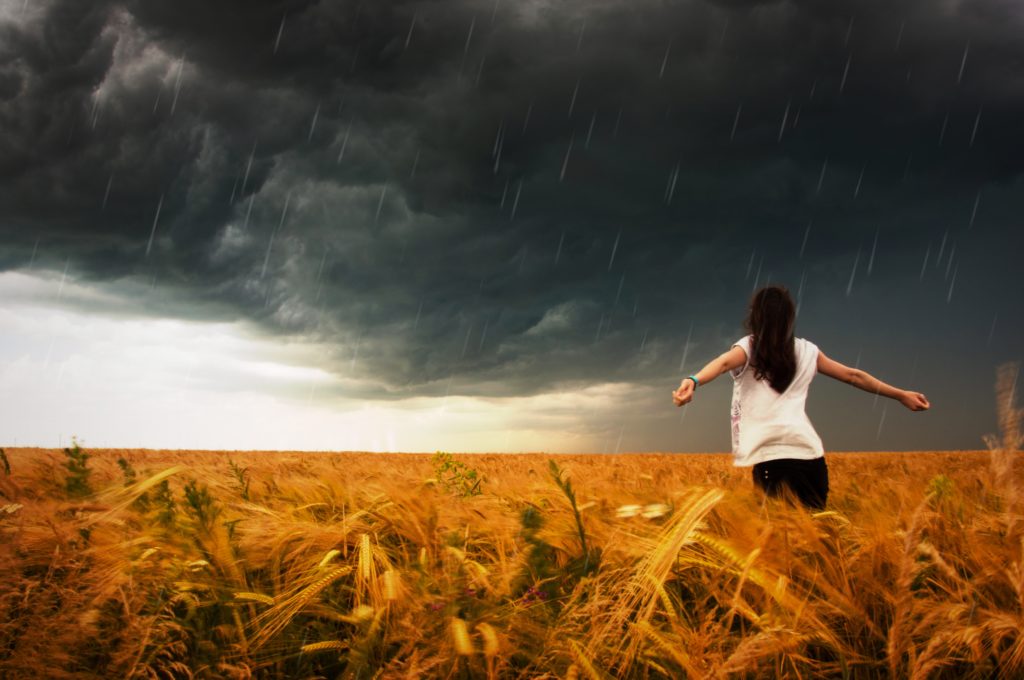
Part 1: The Joy of Doubting | Part 2: The Limits of Logic
So far in this series we’ve noted that doubt is a normal part of maturing and that while we should use logic as a useful tool for the discovery of truth about things we doubt, it cannot function as an absolute authority. This time I’d like to suggest an approach to dealing with those situations where logic runs out of gas. This principled approach is an important enough concept that I’m including it here as a conclusion to this series even though I’ve alluded to it before.
Let me expand on an illustration from Charles Ryrie’s Basic Theology.
Suppose I come home from work early one day. I pull into the driveway, and there’s a car there that I don’t recognize. I get out of my car and, when I close the door, a man I don’t recognize emerges from the front door and onto the porch. He’s tall, good-looking, and of course has a full head of thick, glorious hair.
When he sees me, he looks horrified. He runs to his car, fires it up, and squeals the tires as he speeds away.
Now.
What am I going to think?
Actually, it depends.
On what?
It depends on how my wife and I are getting along these days.
If our relationship is healthy, we’re talking, solving problems together, sharing goals—in other words, there are no suppressed pathologies in the relationship—then I’m going to assume that there’s a reasonable explanation for what just happened, that there’s simply something I don’t know that would make it all make sense.
If it happens in early September, I might think, “Hey, my birthday is coming up. I bet she’s planning a surprise party, and he’s the party planner. I’ll have to be sure to act surprised when it happens, so I don’t disappoint her after all that work—because I want her to enjoy the party just as much as I do.”
But if our marriage is in trouble, my thoughts are going to go in a considerably darker direction.
When someone in a relationship with us does something inexplicable, then what we think about that action depends pretty much entirely on how healthy the relationship is. If we trust him, we assume there’s a good explanation. If we don’t, we don’t.
How would you like to be in a marriage where—let’s look at it from the wife’s perspective—your husband comes home and checks the odometer in your car to see whether you’re putting more miles on it than you can account for? Where he grills you about where you’ve been? Every day?
I’d suggest that that’s not a marriage. It’s stalking.
No one wants to live like that.
A husband ought to trust his wife, because he knows her, and because their relationship is in good shape. That’s not being naïve or credulous; it’s being emotionally and socially healthy.
If your immediate thought when God puzzles you is that he doesn’t care about you, or that he’s evil, or that he doesn’t even exist, then it’s time to invest some time and energy in the relationship. Before you make any life-changing decisions—before you deconstruct—you need to give the relationship a chance. That’s how healthy relationships work.
In the case of your relationship with God, that means giving attention to the means of grace, going to the spiritual gym and working out. It means getting into the Word, seeking answers that apply right now to this question that’s troubling you. It means meditating on passages that delineate God’s character and thus present a logical—yes, logical—response to the thing he’s done that puzzles you.
I’ve found that the most impactful way to meditate on the Scripture is to memorize it. But everybody’s different; you may find that other kinds of interaction with the Scripture and prayer and fellowship are more effective for you. That’s great. Go for it.
But give the relationship a chance. Make sure it’s healthy.
You’d do the same for your friends. How much more should you exercise care for your relationship with your Creator, the Lover of your soul?






